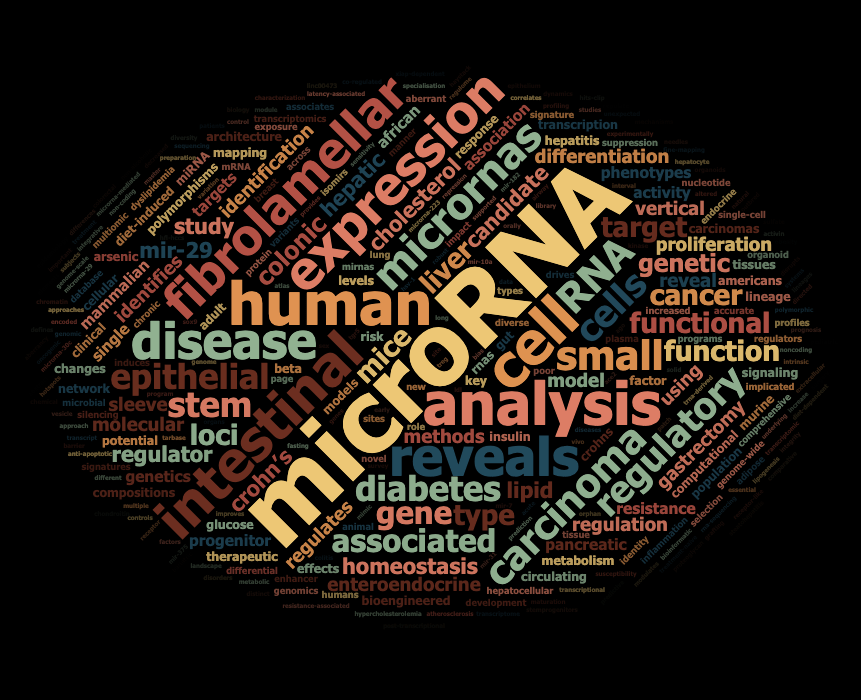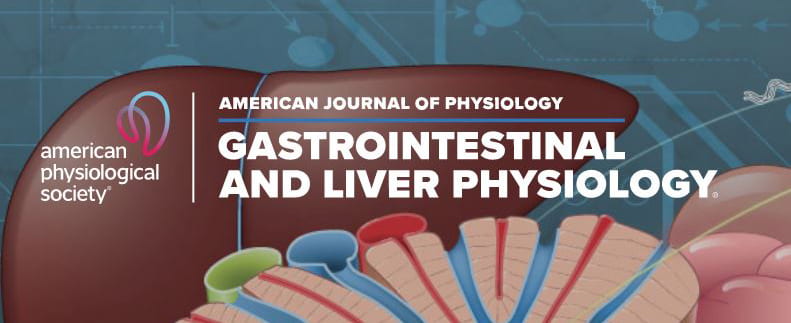Publications
Complete list of publications courtesy of PubMed: https://pubmed.ncbi.nlm.nih.gov/?term=Sethupathy+P&sort=date

Research/Funding
Genomics, Non-coding RNAs, Physiology & Disease
Molecular mechanisms of
|
|
Mechanisms of metabolic
|
Mammalian Quantitative
|
|---|---|---|---|
 |
 |
 |
 |
 |
 |
 |
 |
 |
 |
 |
 |
 |
 |
 |
 |
In my lab we use molecular and genome-scale approaches to gain insight into normal physiology and disease etiology, primarily in the digestive system (gastrointestinal tract, liver, and pancreas). We are particularly interested in defining gene regulatory mechanisms that control liver and gut biology and disease. Active projects in the lab have spanned both basic science (e.g., microRNA control of lineage allocation in the gut epithelium) and translational science (with a focus on diseases of the digestive system such as diabetes, Crohn’s, and fibrolamellar carcinoma). Our lab members have training and expertise in a diverse array of disciplines, including physiology, functional genomics, gene regulation, non-coding RNAs, bioinformatics, gut mucosal biology, molecular biology, and cancer biology. Another important aspect of our research program is systems genetics, linking genetic variants to molecular pathways to phenotypes.
We are always on the lookout for motivated trainees and staff scientists with interests in one or more of several diverse areas of study, including gene regulation; regulatory RNAs; bioinformatics; molecular genetics; transgenic mouse models; metabolic disease; and liver & GI biology/physiology, stem cell behavior, and cancer.
We are indebted to our collaborators, colleagues, and funding sources, without whom we could not efficiently tackle what we believe are incredibly interesting and important problems in biomedicine.
The major areas of current research in the lab are:
- Genome-scale approaches to discover novel oncogenic pathways and therapeutic vulnerabilities in fibrolamellar carcinoma.
- Contribution of microRNAs to lineage allocation and function in the gut epithelium, especially in the context of environmental perturbation.
- Genetic and dietary control of the gut epithelium, most notably Paneth cells.
- Supporting roles in collaborative projects on fatty liver disease and diabetes.
Our research has been supported by grants from a diverse set of funding sources, including the National Institutes of Health, the Fibrolamellar Cancer Foundation, the American Diabetes Association, the American Heart Association, the Crohn’s & Colitis Foundation of America, and Alnylam Pharmaceuticals Inc. Our goal is to discover novel mechanisms in physiology and disease, primarily GI-related, advancing basic science and opening up new avenues for the development of effective therapeutics.
Key Active Collaborators
Dr. Toly Aydemir, Cornell University, Nutrition
Dr. Sudha Biddinger, Harvard Medical School
Dr. Nicolas Buchon, Cornell University, Entomology
Dr. Francis Collins, NIH, NHGRI
Dr. Charles Danko, Cornell University, Biomedical Sciences
Dr. Mohanish Deshmukh, UNC Chapel Hill, Neuroscience
Dr. Luke Dow, Weill Cornell
Dr. Terry Furey, UNC Chapel Hill, Genetics
Dr. Rebecca Fry, UNC Chapel Hill, Toxicology
Dr. Samir Kelada, UNC Chapel Hill, Genetics
Dr. Priya Rajasethupathy, Rockefeller, Neuroscience
Dr. Lola Reid, UNC Chapel Hill, Cell Biology & Physiology
Dr. Darleen Sandoval, University of Colorado, Pediatrics
Dr. Anath Shalev, UAB, Medicine
Dr. Shehzad Sheikh, UNC Chapel Hill, Medicine
Dr. Jason Spence, University of Michigan, Cell & Developmental Biology
Dr. Mirek Styblo, UNC Chapel Hill, Nutrition
Dr. Elia Tait-Wojno, University of Washington, Immunology
Dr. Nate Vacanti, Cornell University, Nutrition
Dr. Khashayar Vakili, Boston Children’s, Oncology
Dr. Gerlinde Van de Walle, Cornell University, Baker Institute
Dr. Jim Wells, Cincinnati Children’s, Endocrinology
Dr. Philip White, Duke University, Medicine
Dr. Mark Yarchoan, Johns Hopkins, Oncology
